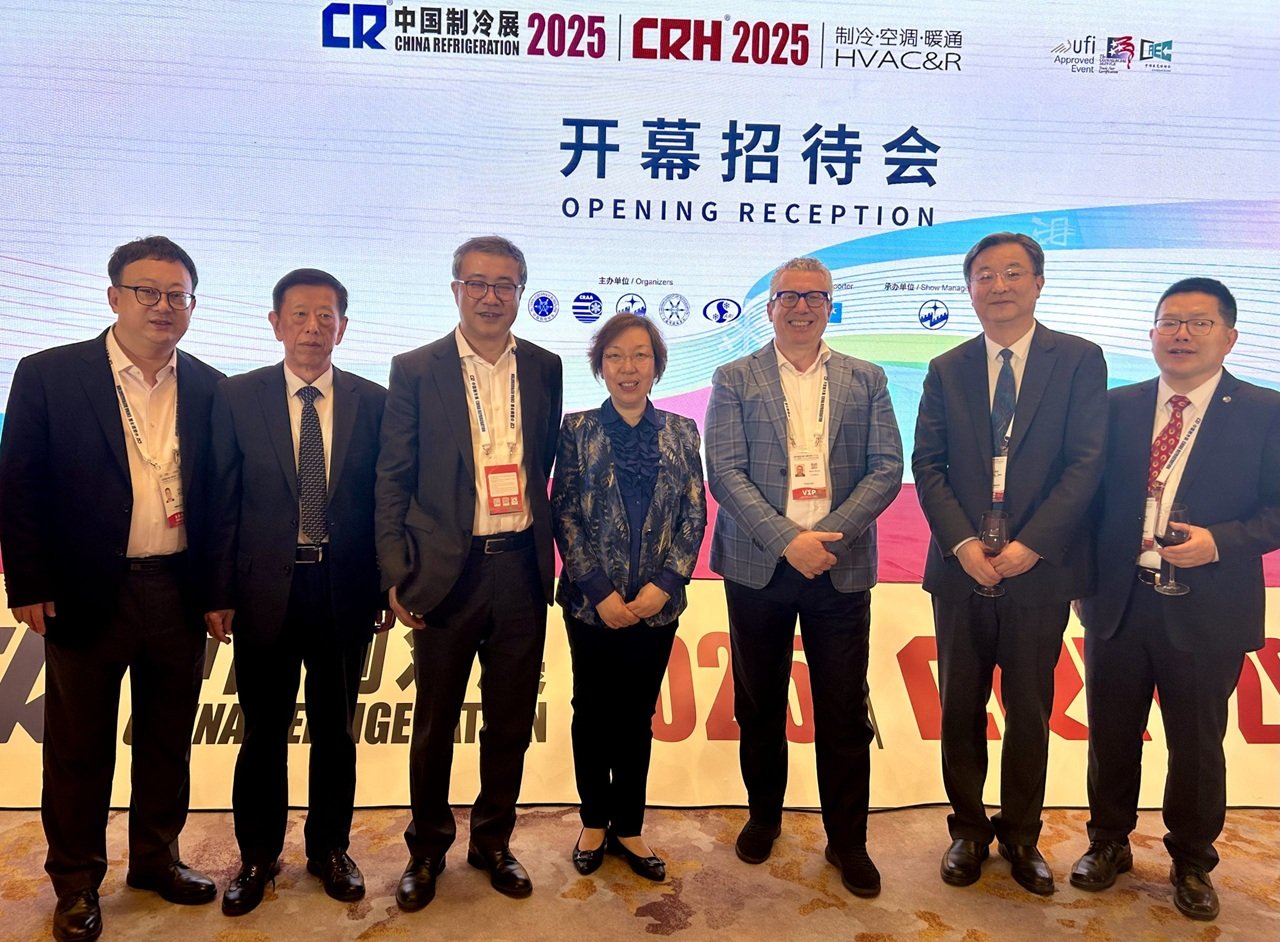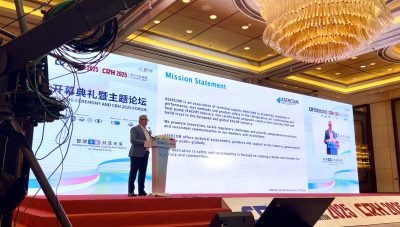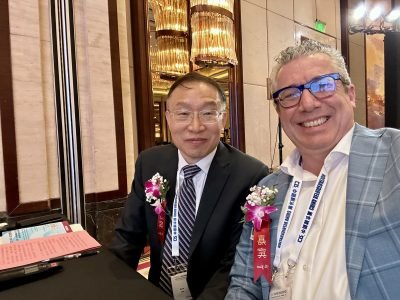ASERCOM Highlights Natural Refrigerants and Global Standards at CRH 2025
At CRH 2025 in China, ASERCOM underscored the importance of low-GWP refrigerants, AI integration, and international standardization in steering the RACHP industry toward a low-emission future.
ASERCOM President Marco Masini’s presentation at the CRH Forum addressed key challenges and opportunities in the adoption of very low-GWP refrigerants. These include handling flammability, high operating pressures, and ensuring efficiency while complying with current safety standards. He also discussed European policy developments supporting the refrigerant transition.
Artificial Intelligence emerged as a prominent new theme at the event, with Professor Zongben Xu calling for an “industry proprietary” database to improve AI training using operational data, consumption metrics, and IoT-sourced diagnostics.
ASERCOM’s engagement was widely recognized. CRA, the host association, praised the association’s insights into safety, energy efficiency, and product responsibility. Professor Xianting Li, Vice President of the Chinese Association of Refrigeration (CAR), highlighted the relevance of ASERCOM’s policy overview: “The information about policies and progress in Europe benefits many manufacturers with connections to the European market — and also supports Chinese practitioners.”
Focus on Global Standardization
Discussions during CRH 2025 emphasized aligning standards at ISO and IEC levels to better support the evolving needs of the RACHP sector. A proposal was raised to restructure ISO/TC86, particularly by expanding subcommittees to cover components beyond compressors — with ASERCOM invited to contribute to this initiative.
“Expanding the scope at ISO level to include more products and components could drive manufacturers toward product excellence and promote fairness in the global market,” said ASERCOM President Marco Masini.
The association's Standardization Working Group will continue to monitor and support this process. The SC4 Secretariat expressed strong interest in further collaboration and welcomed ASERCOM's input at the upcoming ISO conference in May.
Industry Cooperation and Regional Insights
Meetings with global stakeholders — including AHRI and associations from Korea, India, Turkey, and others — highlighted a shared interest in closer EU cooperation. ASERCOM members also discussed the benefits of local production in China and the importance of technical knowledge-sharing to build a globally aligned, low-carbon RACHP market.
“Sharing our knowledge on safety and fair performance measurement is the best way to foster global progress,” said an ASERCOM Board member. “These issues aren’t about competition — they’re about building a strong and fair market.”
CRH 2025 reaffirmed its status as a vital platform for industry dialogue, innovation, and collaboration across continents.


